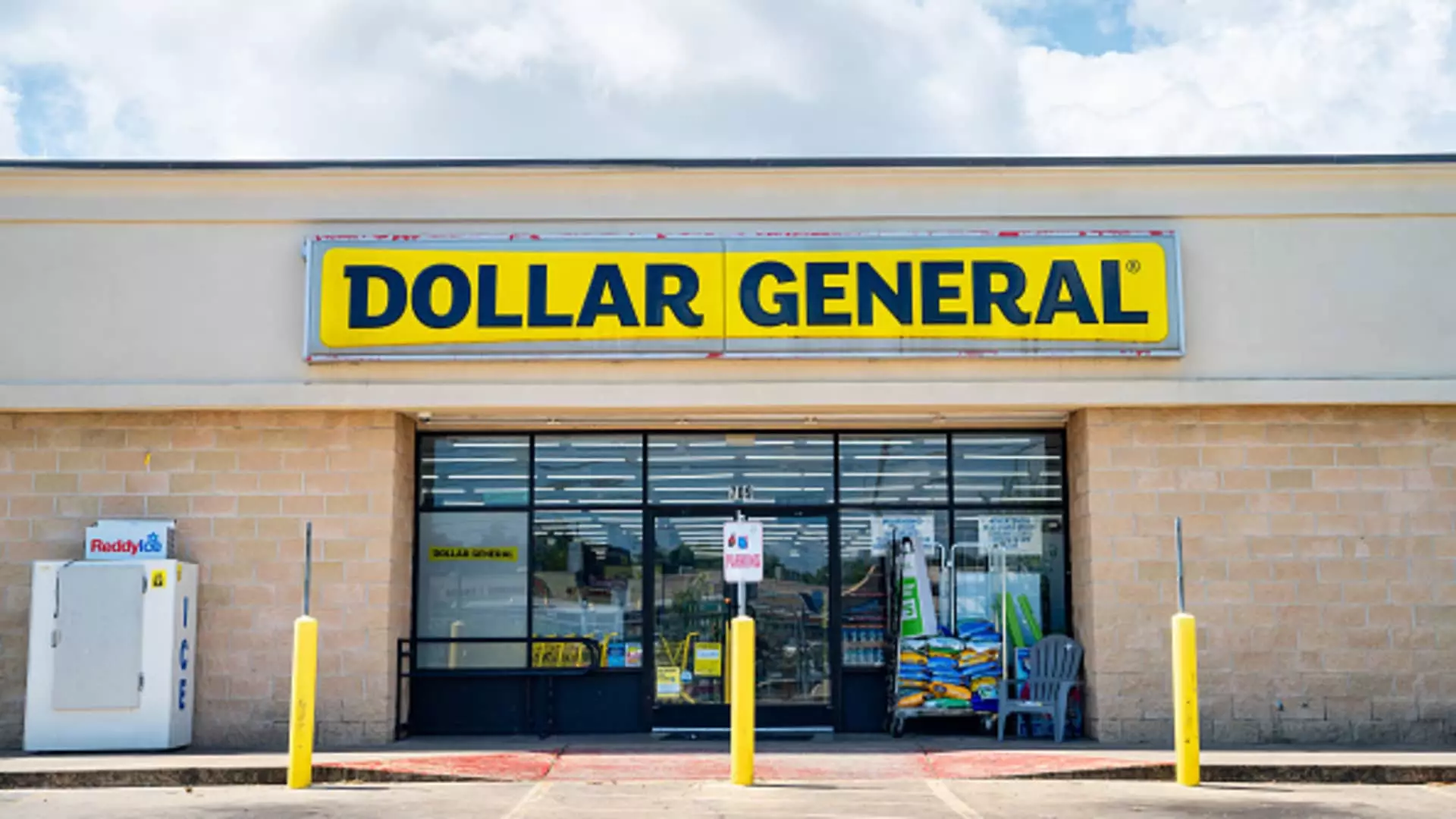In a disheartening revelation from Dollar General’s recent fourth-quarter earnings call, CEO Todd Vasos painted a stark portrait of the ongoing inflation crisis that continues to burden the wallets of the company’s core customers. The stark reality is that inflation has become a detrimental force not just economically but also socially, forcing individuals to grapple with the grim task of deciding between basic necessities. The implications of these revelations are far-reaching, with many Americans finding themselves in a state of financial redundancy, barely scraping by.
Vasos asserts that consumers are expecting value and convenience “more than ever,” but what does this really signal about the current American economic landscape? It indicates a critical disconnect between the realities of everyday Americans and the grand narratives propagated by economic theorists. With many families now forced to tighten their budgets to only accommodate essential spending, it’s evident that policymakers have failed to address the core issues perpetuating this inflation crisis.
Understanding the Strain on Core Consumers
As Vasos notes, Dollar General’s customers are “always strained,” but these times call for particular resilience. The economy has forced a transformation in consumer behavior; people are adapting to the realities of the inflation era. Yet this adaptability masks a deeper, more troubling phenomenon: the erosion of financial stability among many Americans. When consumers speak about “sacrificing even on necessities,” we must recognize that it reflects an unfortunate normalcy—one where comfort and security become distant luxuries rather than expected privileges.
The acknowledgment from Vasos regarding the added strain from changes in policy, such as President Trump’s tariffs, highlights a critical area where governmental intervention has had unintended consequences on American consumers. Historically, tariffs have served as a double-edged sword, raising costs while ostensibly protecting domestic industries. Yet, it seems that this has merely exacerbated the plight of low-income families who already reside on the precarious edge of economic stability. Without effective policy reform, these consumers remain vulnerable to global economic fluctuations that seem increasingly out of their control.
The Shift Towards Accessibility Solutions
Dollar General’s announcement of store closures and conversions signifies an evolving strategy to adapt to shifting consumer demands, especially as its demographic grapples with increasing economic hardship. The decision to pivot towards higher-income clientele with Popshelf stores illustrates an attempt to reclaim lost ground. However, this poses an ethical quandary: are we risking alienation of the very demographic that defined Dollar General’s roots?
While the stock market responded positively to Dollar General’s moves, investors must consider the ethical implications of catering primarily to wealthier consumers. Dollar General holds a unique position as a staple for lower-income Americans, and abandoning them could not only impact their market share but also further entrench the growing divide in the economic status of households across the nation.
Now more than ever, it is critical for both corporations and policymakers to prioritize the well-being of average American consumers. The intertwining of corporate actions and governmental policies can either bridge the gap of economic disparity or allow it to further widen. As we move towards 2025, it’s imperative to address these issues with urgency, lest we risk leaving behind a demographic that is struggling to secure even the most basic of necessities.

